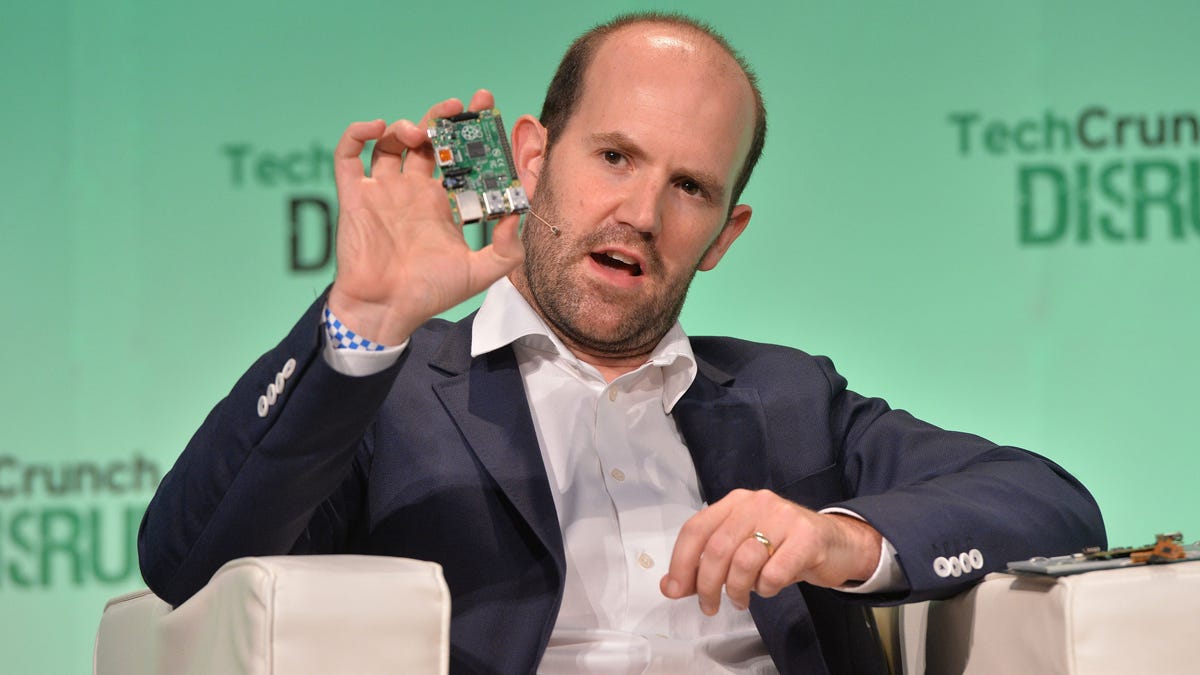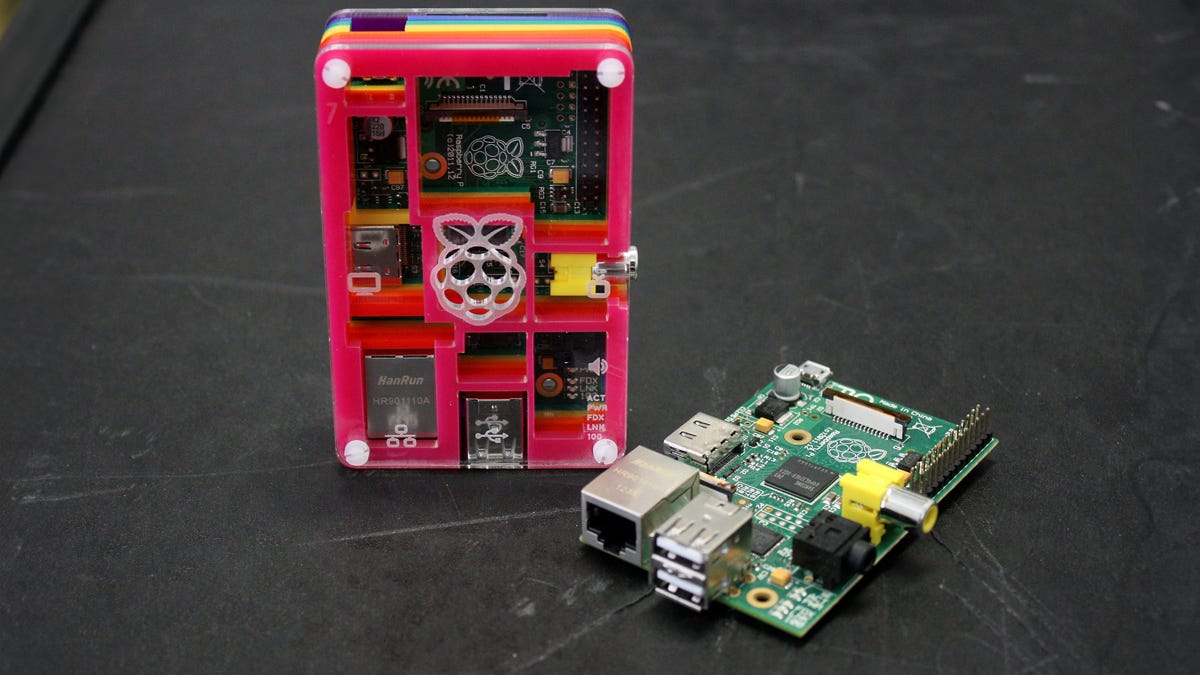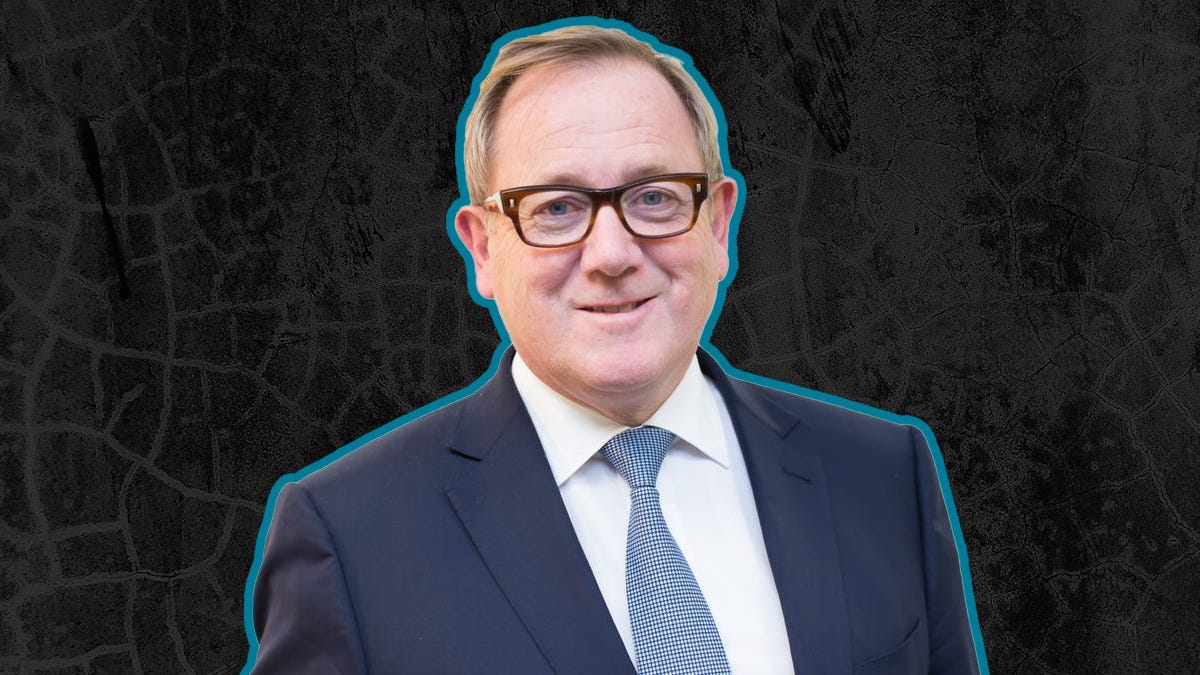Hello and welcome to the latest edition of Off to Lunch…
Raspberry Pi is not yet a household name but with the news the company plans to float on the London Stock Exchange, it’s one we are going to hear a lot about over the coming months. So, who is this (rumoured) £500m computer company?
The inspiration behind what we now know as Raspberry Pi began in the mid-2000s. “There was a massive decline in the number of people applying to study computer science,” says Eben Upton, who now serves as the company’s CEO. “There was a feeling that if we could get a program or a piece of hardware into the hands of young people at the right point in their lives, we might be able to do something to reverse that decline.”
Upton, who was then director of studies in computer science at St John's College at the University of Cambridge, began working on the first prototype of the product with a team that included Jack Lang, who co-founded the company that developed the software for the BBC Micro microcomputer. The aim was to make a programmable piece of hardware that was fun, affordable and robust.
Before a product was sold, the Raspberry Pi Foundation was founded in 2008 to “further the advancement of education of adults and children, particularly in the field of computers, computer science and related subjects”. The first half of the company’s name originated from the storied tradition of naming microcomputers after fruit.
The trading arm of Raspberry Pi was launched in 2012. Upton says he didn’t quite grasp how successful the company was going to be:
From the very beginning, we saw customers using our products in a staggering variety of applications across a broad swathe of markets. As we recognised the potential for affordable technology to make a meaningful difference not just in education but in countless other contexts, the scale of our ambition grew.
12 years later, the Raspberry Pi has become the UK's most successful computer with more than 60 million sold in over 70 countries worldwide. Its foundation has received around $50m in dividends since 2013.
Although the company began production in China, it quickly moved to Sony’s factory in Pencoed, Wales. The Japanese firm has a minority stake in Raspberry Pi, as has Arm Holdings, which struck a partnership with the company in 2008 and has since assisted with manufacturing, design and more.
As part of its intention to float document, Raspberry Pi has given the world a first in-depth look at its revenue growth and profitability record. It shows that group revenues have grown from $140.6m in 2021 to $265.8m in 2023. Gross profit rose from $41.9m to $66m and adjusted EBITDA from $25.7m to $43.5m over the same period.
Raspberry Pi also estimates that its total addressable market in 2023 was approximately $21.2bn and reflects “a substantial opportunity for it to capitalise on and sustain its strong growth trajectory“.
It’s difficult to tell what the future holds for Raspberry Pi as a listed firm, but London is hoping that the company is the hero we deserve.
Podcast…
The latest episode of Business Leader covers the journey of one of Europe’s best-known entrepreneurs. In 1989, Mark Dixon had a realisation: the traditional office didn’t work for many businesses and they needed something more flexible.
More than 30 years later, he has been proved right. IWG, the business he founded, is worth more than £2bn. It runs 4,000 serviced offices around the world, which millions of people use as a base to do their jobs and have meetings.
But it has been a challenging and often lonely battle to get IWG to this point. This is a story that involves rapid growth, Chapter 11 bankruptcy and flashy new rivals…
You can listen to the episode on Substack here, Spotify here and Apple here
Other stories that matter…
1. In the next instalment of “outrage over boss’s pay”, Tesco’s CEO Ken Murphy has more than doubled his pay packet. The head of the UK's largest supermarket group was paid £4.7m in salary and bonuses in the year to February but received a bumper share award for surpassing a number of performance targets. You can read more here.
2. Workday is betting on its venture in the UK. The US software giant has plans to invest £550m in its operations in the country, which will include an expansion of its office in the capital and boosting its employee base. The company says the move furthers its “commitment to strengthen the nation’s economy”. You can read more here.
3. Manufacturing has been declining faster in the UK than other G7 nations but the net-zero transition presents a “perfect opportunity to revitalise UK manufacturing,“ says the Institute for Public Policy Research. A new report from the think-tank highlights that the country has the jump on other nations when it comes to making products and components used for monitoring, measuring and analysing industrial processes. You can read more here.
4. City minister Bim Afolami has said that UK pension funds need to push more money into London’s stock market. Investment from these funds has dropped over the past two decades, a fact that is frustrating the government as it looks to boost the economy ahead of the impending general election. You can read more here.
5. Following the announcement of Open AI’s latest Chat GPT update, Google has come out swinging with its own upgrades. Wired has spoken to an expert who says the moves announced yesterday could mark “a change in the world order”. You can read the full piece here.
And finally…
Manchester’s new £345m arena, Co-Op Live, is back in the headlines today. After weeks of delays to its opening, Elbow finally played the first gig at the stadium last night. But Tim Leiweke, chief executive of Denver-based Oak View Group, which is behind the project, has told the Financial Times that Brexit-fuelled labour shortages are largely to blame for the disruption.
The “root cause” of the venue’s overall delay from January, including most of the recent botched launches, had been the pandemic and Brexit, Leiweke said, in particular a lack of construction workers.
The UK’s largest indoor arena has had two shows by comedian Peter Kay rescheduled, along with performances from the Black Keys, rapper A Boogie Wit Da Hoodie and pop star Olivia Rodrigo.
You can read the full piece here.
Thanks for reading. If you enjoy Off to Lunch then please share it with others and spread the word. If this newsletter was shared with you then please sign-up below to get Off to Lunch sent directly to your inbox










